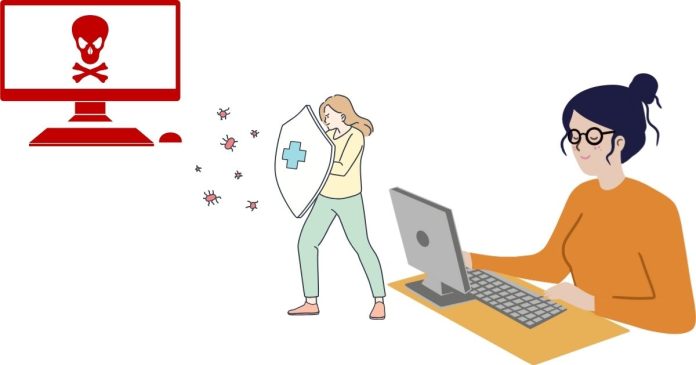In today’s digital age, home computers are more vulnerable to cyber threats than ever before. Hackers, malware, phishing attacks, and ransomware are just a few of the dangers lurking online. Protecting your home computer is essential to safeguard your personal information, financial data, and privacy. Here’s a comprehensive guide on how to defend your computer against cyber threats.
1. Install Reliable Antivirus Software
Antivirus software is your first line of defense against malicious attacks. Choose a reputable antivirus program and ensure it’s always up-to-date. Many antivirus solutions also offer features like real-time protection and malware scanning.
Key Tips:
- Perform regular scans to detect and remove potential threats.
- Enable automatic updates to keep your antivirus software current.
2. Keep Your Operating System Updated
Operating system updates often include security patches to fix vulnerabilities. Ignoring these updates can leave your computer exposed to cyber threats.
Key Tips:
- Enable automatic updates for your operating system.
- Regularly check for and install patches for your installed software.
3. Use Strong Passwords
Weak passwords are an easy target for hackers. Use strong, unique passwords for all your accounts, and change them periodically.
Key Tips:
- Use a combination of uppercase and lowercase letters, numbers, and special characters.
- Consider using a password manager to generate and store secure passwords.
4. Enable Two-Factor Authentication (2FA)
Two-factor authentication adds an extra layer of security by requiring a second form of verification, such as a text message code or authentication app.
Key Tips:
- Enable 2FA on all accounts that support it, including email, banking, and social media.
5. Install a Firewall
A firewall acts as a barrier between your computer and potentially harmful traffic. It monitors and controls incoming and outgoing connections to prevent unauthorized access.
Key Tips:
- Ensure your computer’s built-in firewall is activated.
- Consider using additional firewall software for enhanced protection.
6. Be Wary of Phishing Scams
Phishing scams often appear as legitimate emails or websites that trick you into revealing sensitive information. Stay vigilant to avoid falling victim.
Key Tips:
- Don’t click on links or download attachments from unknown sources.
- Verify the sender’s email address and domain before responding.
7. Secure Your Wi-Fi Network
An unsecured Wi-Fi network can be an easy entry point for hackers. Protect your network with strong encryption and passwords.
Key Tips:
- Use WPA3 or WPA2 encryption for your Wi-Fi network.
- Change the default router username and password.
8. Backup Your Data Regularly
Regular backups ensure that you can recover your data in case of a ransomware attack or hardware failure.
Key Tips:
- Use cloud storage or an external hard drive for backups.
- Schedule automatic backups for convenience.
9. Limit Personal Information Online
Sharing too much personal information online can make you a target for identity theft and social engineering attacks.
Key Tips:
- Avoid sharing sensitive information on social media.
- Be cautious about filling out online forms.
10. Educate Yourself About Cybersecurity
Awareness is one of the most effective tools for preventing cyber threats. Stay informed about the latest threats and best practices for online safety.
Key Tips:
- Follow trusted cybersecurity blogs or news outlets.
- Take online courses or tutorials on cybersecurity basics.
Protecting your home computer from cyber threats requires a combination of the right tools, practices, and awareness. By implementing the steps outlined above, you can significantly reduce the risk of cyberattacks and keep your personal information safe. In the ever-evolving world of cybersecurity, staying proactive and informed is your best defense.



